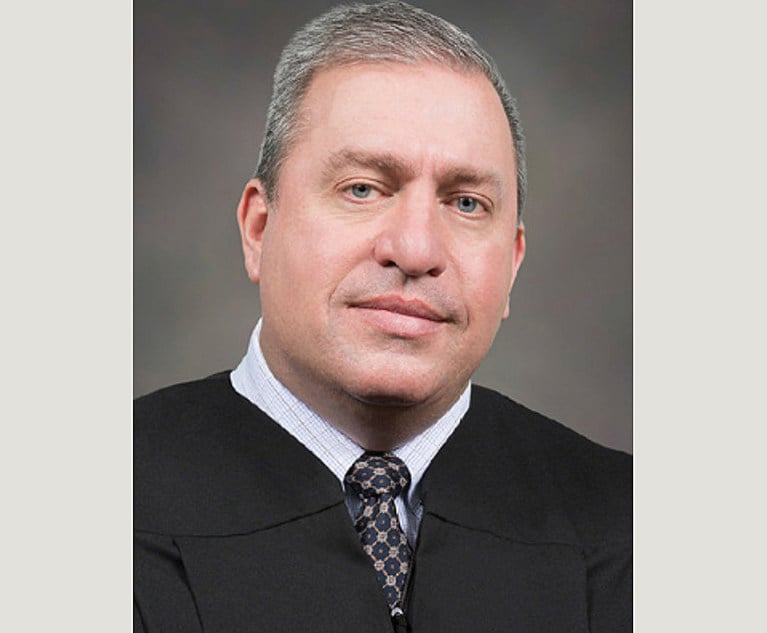Important Updates to Financial Power of Attorney Law
James suffered a severe stroke and was completing his physical rehabilitation at Magee Rehabilitation Hospital. The Legal Clinic for the Disabled (LCD) has a medical-legal partnership at Magee and while he was in-patient, James requested legal assistance from LCD.
April 27, 2015 at 08:51 AM
7 minute read
James suffered a severe stroke and was completing his physical rehabilitation at Magee Rehabilitation Hospital. The Legal Clinic for the Disabled (LCD) has a medical-legal partnership at Magee and while he was in-patient, James requested legal assistance from LCD. Prior to the stroke, James managed his own finances and decision-making but now found his physical limitations made it very difficult to manage even his daily personal needs. He required assistance with dressing and transferring to and from his wheelchair. James handled the family's bills and expenses with a bank account held solely in his name. As a result, his wife could not access these funds without proper authorization. An LCD attorney met with James and executed a financial power of attorney designating his wife as his agent. With the power of attorney completed, his wife now had the authority to access his account to manage the family's bills and finances.
A few weeks later, James' wife called LCD because the bank had refused to accept the power of attorney. The LCD attorney contacted the bank's attorneys but was stonewalled and unable to get any answers as to why the power of attorney was unacceptable. Eventually, after a long discussion regarding the statutory Pennsylvania requirements of a power of attorney, the LCD attorney convinced the branch to accept the power of attorney. Between the time of the denial and the time the power of attorney was finally accepted, James' family experienced significant stress. They spent valuable time resolving a problem that should not have occurred in the first place instead of focusing on supporting James during his recovery.
Unfortunately, James' case is not uncommon. For many families, a catastrophic event or sudden illness makes obtaining powers of attorney an immediate necessity. Prior to injury and illness, most individuals—even those who acknowledge the importance of having a power of attorney—do not always have this planning document in place. This creates a complicated situation for families navigating a medical crisis while facing the need for advanced planning. LCD clients have repeatedly reported that banks often turn away valid powers of attorney and require individuals to execute bank-specific authorizations. The uncertainty of whether a third party will accept a power of attorney adds another layer of complexity at a time that is already stressful and unsettling. In addition, the seemingly simple requirement of getting to the bank to execute the additional documents may prove to be prohibitive for individuals recovering from sudden catastrophic injuries or illnesses.
NOT FOR REPRINT
© 2024 ALM Global, LLC, All Rights Reserved. Request academic re-use from www.copyright.com. All other uses, submit a request to [email protected]. For more information visit Asset & Logo Licensing.
You Might Like
View All
Pa. High Court to Weigh Parent Company's Liability for Dissolved Subsidiary's Conduct
3 minute read
Pa. Supreme Court Taps New Philadelphia Family Division Administrative Judge
3 minute read
People in the News—Nov. 27, 2024—Flaster Greenberg, Tucker Arensberg
3 minute read
Don’t Settle for the Minimum: Finding Constitutional Claims Closer to Home
7 minute readTrending Stories
Who Got The Work
Michael G. Bongiorno, Andrew Scott Dulberg and Elizabeth E. Driscoll from Wilmer Cutler Pickering Hale and Dorr have stepped in to represent Symbotic Inc., an A.I.-enabled technology platform that focuses on increasing supply chain efficiency, and other defendants in a pending shareholder derivative lawsuit. The case, filed Oct. 2 in Massachusetts District Court by the Brown Law Firm on behalf of Stephen Austen, accuses certain officers and directors of misleading investors in regard to Symbotic's potential for margin growth by failing to disclose that the company was not equipped to timely deploy its systems or manage expenses through project delays. The case, assigned to U.S. District Judge Nathaniel M. Gorton, is 1:24-cv-12522, Austen v. Cohen et al.
Who Got The Work
Edmund Polubinski and Marie Killmond of Davis Polk & Wardwell have entered appearances for data platform software development company MongoDB and other defendants in a pending shareholder derivative lawsuit. The action, filed Oct. 7 in New York Southern District Court by the Brown Law Firm, accuses the company's directors and/or officers of falsely expressing confidence in the company’s restructuring of its sales incentive plan and downplaying the severity of decreases in its upfront commitments. The case is 1:24-cv-07594, Roy v. Ittycheria et al.
Who Got The Work
Amy O. Bruchs and Kurt F. Ellison of Michael Best & Friedrich have entered appearances for Epic Systems Corp. in a pending employment discrimination lawsuit. The suit was filed Sept. 7 in Wisconsin Western District Court by Levine Eisberner LLC and Siri & Glimstad on behalf of a project manager who claims that he was wrongfully terminated after applying for a religious exemption to the defendant's COVID-19 vaccine mandate. The case, assigned to U.S. Magistrate Judge Anita Marie Boor, is 3:24-cv-00630, Secker, Nathan v. Epic Systems Corporation.
Who Got The Work
David X. Sullivan, Thomas J. Finn and Gregory A. Hall from McCarter & English have entered appearances for Sunrun Installation Services in a pending civil rights lawsuit. The complaint was filed Sept. 4 in Connecticut District Court by attorney Robert M. Berke on behalf of former employee George Edward Steins, who was arrested and charged with employing an unregistered home improvement salesperson. The complaint alleges that had Sunrun informed the Connecticut Department of Consumer Protection that the plaintiff's employment had ended in 2017 and that he no longer held Sunrun's home improvement contractor license, he would not have been hit with charges, which were dismissed in May 2024. The case, assigned to U.S. District Judge Jeffrey A. Meyer, is 3:24-cv-01423, Steins v. Sunrun, Inc. et al.
Who Got The Work
Greenberg Traurig shareholder Joshua L. Raskin has entered an appearance for boohoo.com UK Ltd. in a pending patent infringement lawsuit. The suit, filed Sept. 3 in Texas Eastern District Court by Rozier Hardt McDonough on behalf of Alto Dynamics, asserts five patents related to an online shopping platform. The case, assigned to U.S. District Judge Rodney Gilstrap, is 2:24-cv-00719, Alto Dynamics, LLC v. boohoo.com UK Limited.
Featured Firms
Law Offices of Gary Martin Hays & Associates, P.C.
(470) 294-1674
Law Offices of Mark E. Salomone
(857) 444-6468
Smith & Hassler
(713) 739-1250





